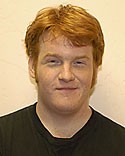hen John F. Kennedy ran for president in 1960, some feared that his status as a Catholic implied that the pope would be capable of influencing U.S. policy decisions. (Catholics, in theory, adhere to every instruction the pope gives them.) Fortunately, Kennedy was elected in spite of these concerns because a considerable majority of the public realized that church and state are separate entities, but is a complete separation of the two possible? Church and state are supposed to be divided by law, but the popular majority makes the laws, and so what happens if the popular majority wishes to incorporate the doctrines of their faith into the laws they make?
Take, for example, the recent U.S. veto of a proposed U.N. Security Council resolution Thursday. It was the first in the last two years. What’s strange is that the last one pertained to the same exact issue as the most recent one: Israeli military actions in Gaza. In fact, of the United States’ nine most recent Security Council vetoes, all but one has been concerned with the Israeli/Palestinian conflict. As The Associated Press report on the recent veto states, “”The U.S. has periodically used its veto to block resolutions critical of Israel.””
Behind every effort to add religious
elements to a nation’s governance is a desire to control and impose.
Such inveterate support of Israel may shed light on the theocratic aspects of the United States’ “”democracy.”” Keeping the principle of government by and for the people in mind, one concludes that if the majority of Americans subscribe to some form of Judeo-Christian belief, then policies which favor Judeo-Christian allies (like Israel) over Islamic ones (like Lebanon) are in concordance with our form of government.
The Israeli/Palestinian conflict isn’t the only issue with a religious undertone, however. Abortion, biotechnology, euthanasia and the teaching of evolution in school classrooms all bear the mark of the beast – the beast being religion, of course.
In keeping with the theme of vetoes, President Bush is poised to veto a bill that aims to lift restrictions set on federal funding of embryonic stem cell research. Why? Because, according to some protestant “”theologians”” (Pat Robertson, Jerry Falwell, etc.), embryos are practically viable human beings; consequently, extracting stem cells from the embryos to find treatments for various diseases is tantamount to killing one person in order to save another. We’re all living creatures, after all; never mind that one can actually see somebody with kidney cancer suffer while embryos are microscopic – clearly, they still scream when their lives are taken from them; and they still shed tears when they realize their mommy allowed another embryo to develop into a fetus and then a child. Such a scenario illustrates the price of policy dictated by religion. However, a man dying of cancer has to suffer in order to conform to the moral doctrines of a faith he may or may not believe in himself.
Behind every effort to add religious elements to a nation’s governance is a desire to control and impose. Creationists don’t want an alternative to their theory (evolution) to be presented in classrooms for fear that it’s more appealing, for fear that individuals will decide for themselves what they wish to believe in. The former Soviet Union took a similar stance in regard to the communist party: the state precluded the possibility of another political party, one contradictory to the communists, through secret police and propaganda.
The U.S. has never been as bad as Soviet Russia, however, principally because the U.S. government was designed with the intention of preserving individual freedom. An American has the right to choose whether or not he adheres to the teachings and rules of a particular religion, but he doesn’t have the right to impose those rules on fellow citizens.
Ultimately, our freedom hinges on the right to live our lives in the manner we choose, and so citizens must not allow their religious beliefs to affect the political choices they make, for those choices may ultimately be inadvertently imposed on others.
Andrew McGhee is a sophomore majoring in physics. He can be reached at letters@wildcat.arizona.edu









